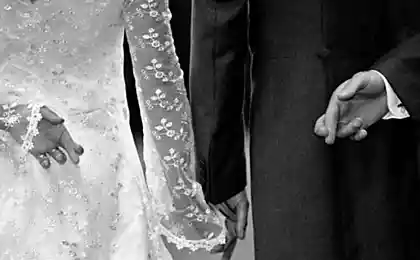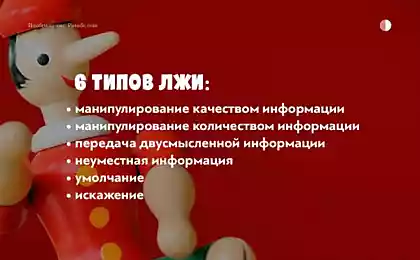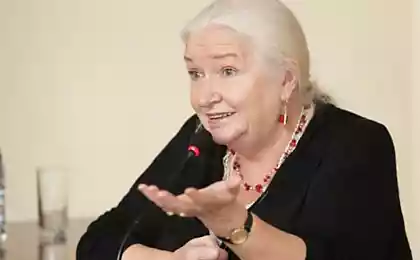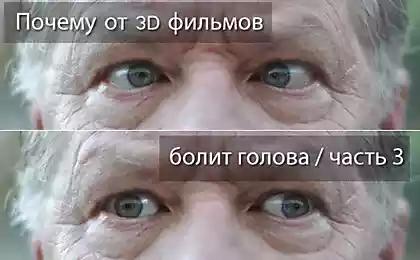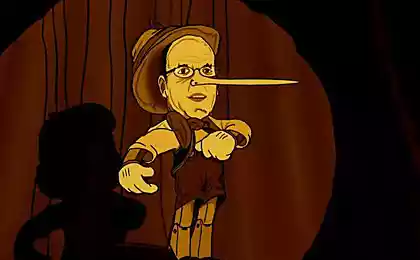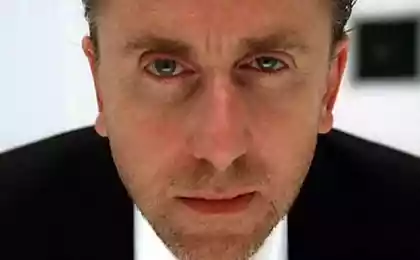503
To lie so as not to be caught: speech building, outstanding a lie
In case of discrepancy between words and gestures of your interlocutor more trust your vision than to hearing. To hide the truth or the true relationship to you easier through words, facial expressions, voice, and more difficult with other means of communication: gestures, movements, posture.
Probably every person at least once in their life asked themselves the question of how to catch a liar or to lie so as not to be caught. On the complexity of the phenomenon of lying is evidenced by the fact that over the millennia of human civilization, people have invented thousands of ways of cheating and he invented dozens of names.
Thirty eight million eight hundred forty two thousand eight hundred sixty
One has only to open the dictionary, and you can be amazed at the number of synonyms of the verb "to cheat»: to deceive, to outwit, to trick, to undertake, to circumvent, to outwit, to cheat, to fool, to leave with the nose, to cheat, to RUB points, to instruct the nose, amorosity, to fool, to cheat, to fool, to cheat, to beat, to fool, to fool, to cheat, to cheat, to obeseity, obstoyat, shod, to heat, to take the gun, confuse or mess with your head, cover your eyes, to spend, to hang noodles on the ears, etc.
The eternal problem of human sincerity has become a subject of discussion in artistic and scientific literature, which addressed the issue lies with two main positions: morality and the psychology. In society, as we know, man has to hide his true self, which inevitably leads to lies. People lie, to observe basic rules of politeness, or resorts to lies when it is beneficial for him.
Renowned psychologist Jean Dupre gives the following definition of a lie: «A lie is a psychosocial verbal or not, the act of suggestion, which strive, more or less deliberately, to sow in the mind of the other any positive or negative beliefs, which he believes inspires nasty truth".
Misrepresentation of another person, a suggestion to him about "beliefs", according to J. Dupre, can be a conscious (deliberate, intentional) and unconscious. These two kinds of lies isolated and other authors.
Watching, analyzing, summarizing information, drawing conclusions about the integrity of a person; deciding to accept his information as true or false in this situation, people are based on their own standards of truth and falsehood, sincere and insincere behavior.
However, not all behavioral traits lying about a person is equally significant. Therefore, different people with varying degrees of success at detecting lies among the information that gives them the source.
The insincerity of the interlocutor can indicate the following words, phrases, responses, and patterns of speech (but in any case, are not unequivocal evidence of this):
An honest man tries to speak more and defends his sincerity when expressing doubt about it, while indifferent, evasive answers to direct questions do not fit into the concept of ethical behavior. It:
This behavior is caused by the fact that in the course of the conversation the person is getting harder and harder to lie. If you find out any circumstances, it is useful to keep in mind that an innocent man:
At the same time a guilty person:
The study mentioned features of speech behavior of the interlocutor will give you the opportunity to develop your powers of observation will allow you to work out a reasonable style of their own behavior.
One of the most important practical advice is toin case of discrepancy between words and gestures of your interlocutor to trust more to his eyesight than hearing. Truth will correspond more still involuntary gestures,the movement of the person, his facial expressions and not a spoken phrase.
Be aware that the reliability of the signs that transmit the true attitude of your partner in communication, decreases in the following order: spatial location, posture, voice signals, facial expressions, direct statements. In other words, hide the truth or the true relationship to you easier through words, facial expressions, voice, and hardest of all — with the help of other means of communication (gestures, movements, posture).published
Author: Dmitriy Aksenov
P. S. And remember, only by changing their consumption — together we change the world! ©
Join us in Facebook , Vkontakte, Odnoklassniki
Source: www.elitarium.ru/obshhenie-lozh-iskrennost-sobesednik-povedenie-rech-zhesty-mimika/
Probably every person at least once in their life asked themselves the question of how to catch a liar or to lie so as not to be caught. On the complexity of the phenomenon of lying is evidenced by the fact that over the millennia of human civilization, people have invented thousands of ways of cheating and he invented dozens of names.
Thirty eight million eight hundred forty two thousand eight hundred sixty
One has only to open the dictionary, and you can be amazed at the number of synonyms of the verb "to cheat»: to deceive, to outwit, to trick, to undertake, to circumvent, to outwit, to cheat, to fool, to leave with the nose, to cheat, to RUB points, to instruct the nose, amorosity, to fool, to cheat, to fool, to cheat, to beat, to fool, to fool, to cheat, to cheat, to obeseity, obstoyat, shod, to heat, to take the gun, confuse or mess with your head, cover your eyes, to spend, to hang noodles on the ears, etc.
The eternal problem of human sincerity has become a subject of discussion in artistic and scientific literature, which addressed the issue lies with two main positions: morality and the psychology. In society, as we know, man has to hide his true self, which inevitably leads to lies. People lie, to observe basic rules of politeness, or resorts to lies when it is beneficial for him.
Renowned psychologist Jean Dupre gives the following definition of a lie: «A lie is a psychosocial verbal or not, the act of suggestion, which strive, more or less deliberately, to sow in the mind of the other any positive or negative beliefs, which he believes inspires nasty truth".
Misrepresentation of another person, a suggestion to him about "beliefs", according to J. Dupre, can be a conscious (deliberate, intentional) and unconscious. These two kinds of lies isolated and other authors.
Watching, analyzing, summarizing information, drawing conclusions about the integrity of a person; deciding to accept his information as true or false in this situation, people are based on their own standards of truth and falsehood, sincere and insincere behavior.
However, not all behavioral traits lying about a person is equally significant. Therefore, different people with varying degrees of success at detecting lies among the information that gives them the source.
The insincerity of the interlocutor can indicate the following words, phrases, responses, and patterns of speech (but in any case, are not unequivocal evidence of this):
- persistent belief in his own sincerity in which he too stresses its honesty, always insisting that only speaks the truth in cases when it is not expressed in any way distrust his words. For example: "honestly, I don't know"; "I swear to health"; "give a hand to cut off"; "I swear, it was like this".
- avoiding discussion of certain topics, issues (when they touch any unpleasant person moments). For example: "I won't discuss it"; "can't remember"; "I didn't say(a)"; "I do not see any connection here»;
- unreasonably dismissive, calling or hostile tone when you clearly provoke rudeness. For example: "I'm not obliged(a) to answer your questions"; "I don't know what was going on"; "I don't want to talk to you»;
- the desire to arouse your sympathy, trust, a sense of pity if prior relationships have not led to such convergence. For example: "I have a family, children"; "I am the same as you"; "I have exactly the same problem»;
- a short denial or indifferent, evasive answers to direct questions. Simple repetitive responses or the repetition of the simple negation. The avoidance of the use of the words "Yes" or "no". For example: "I know nothing about it"; "you said it yourself"; "I'm not sure(a)"; "you respect me?"; "you are, undoubtedly, a serious man»;
An honest man tries to speak more and defends his sincerity when expressing doubt about it, while indifferent, evasive answers to direct questions do not fit into the concept of ethical behavior. It:
- hesitation in the statements; the diversion of the source of unceasing conversation or numerous issues;
- unwillingness or inability to answer questions;
- long pauses before answers; too slow or inconsistent responses;
- answer a question with a question;
- repeat questions aloud or requests for clarification of the question;
- masking the subject matter superfluous, irrelevant information.
This behavior is caused by the fact that in the course of the conversation the person is getting harder and harder to lie. If you find out any circumstances, it is useful to keep in mind that an innocent man:
- can Express the suspicion, distrust you, without causing the counter to clarify the circumstances of the case;
- often gives detailed information with all the details, even not directly related to the case;
- verbose;
- constantly trying to kill you with their explanations;
- begins to actively defend before it accused or suspect.
At the same time a guilty person:
- avoids detailed explanations, terse;
- holding back when answering questions;
- has opposition to find out the facts;
- may waive the explanation and for no apparent reason;
- indicates the accuracy of small details;
- Express a desire to help you in the clarification of certain circumstances.
The study mentioned features of speech behavior of the interlocutor will give you the opportunity to develop your powers of observation will allow you to work out a reasonable style of their own behavior.
One of the most important practical advice is toin case of discrepancy between words and gestures of your interlocutor to trust more to his eyesight than hearing. Truth will correspond more still involuntary gestures,the movement of the person, his facial expressions and not a spoken phrase.
Be aware that the reliability of the signs that transmit the true attitude of your partner in communication, decreases in the following order: spatial location, posture, voice signals, facial expressions, direct statements. In other words, hide the truth or the true relationship to you easier through words, facial expressions, voice, and hardest of all — with the help of other means of communication (gestures, movements, posture).published
Author: Dmitriy Aksenov
P. S. And remember, only by changing their consumption — together we change the world! ©
Join us in Facebook , Vkontakte, Odnoklassniki
Source: www.elitarium.ru/obshhenie-lozh-iskrennost-sobesednik-povedenie-rech-zhesty-mimika/
